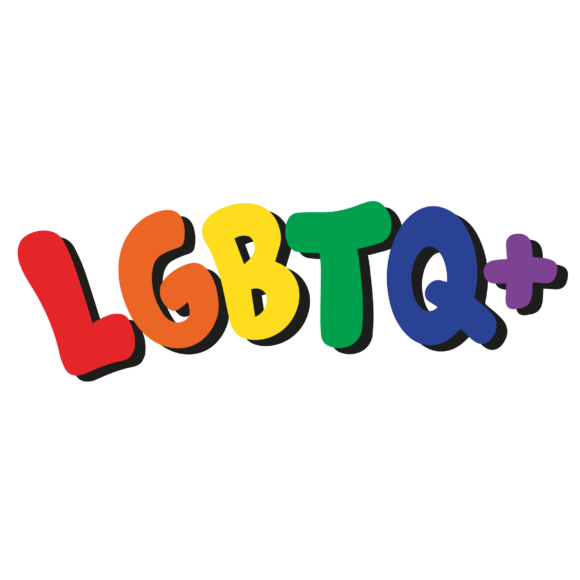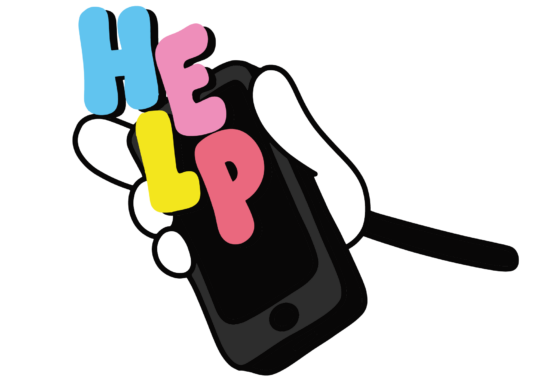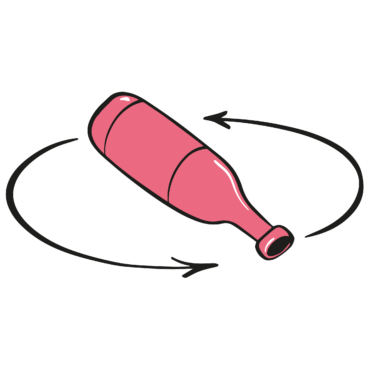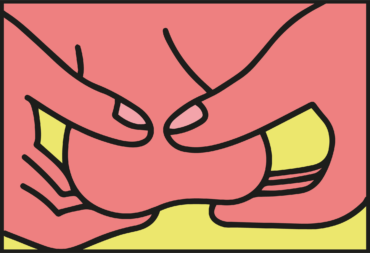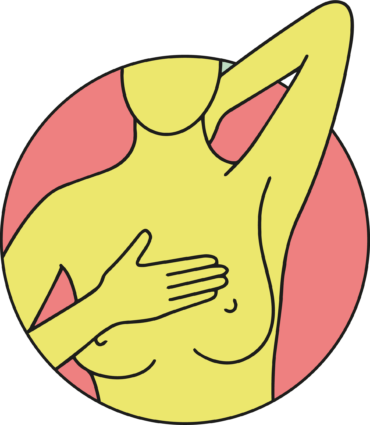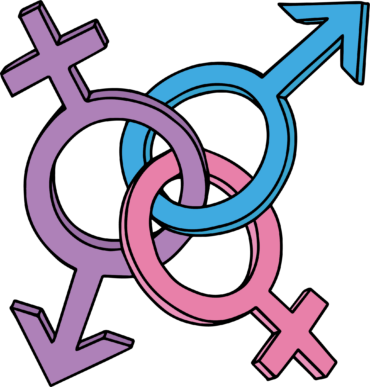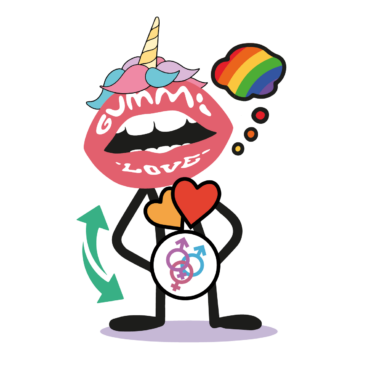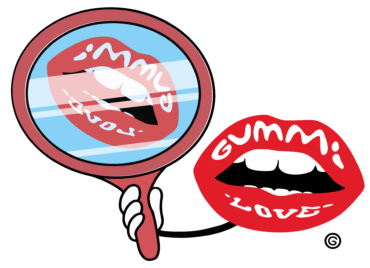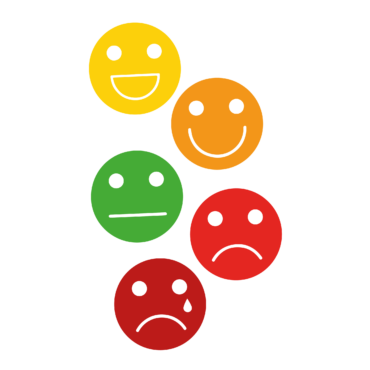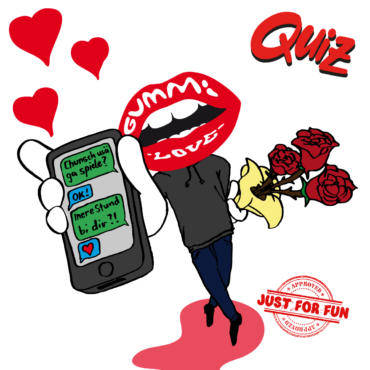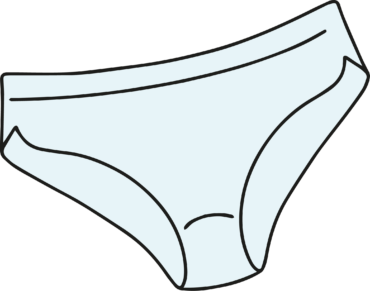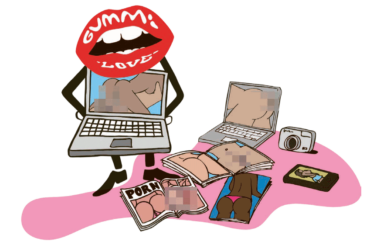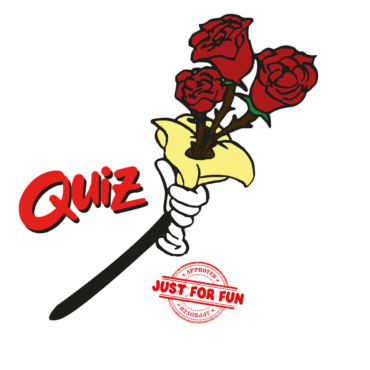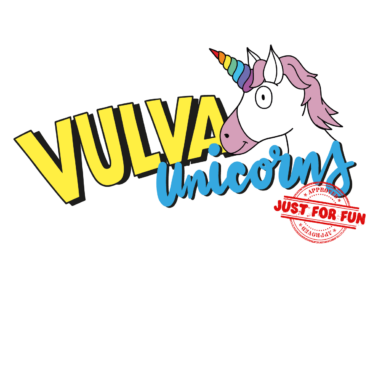1. in the beginning it was called 'LGBT'
In the 1990s, efforts to recognize homosexualHomosexual means that someone is attracted to people of the same sex. It is a form of sexual orientation, such as heterosexual, pansexual or bisexual. and bisexualA person is bigender if they have two gender identities. These are often male and female, but not always. people joined forces with transgenderTransgender is an umbrella term for all people who do not identify with the gender to which they were assigned at birth. people. From then on, the T (for trans) joined the three letters LGB for lesbian, gay and bi and the acronym LGBT spread around the world.
However, it quickly became clear that this excludes other groups who are also oppressed and cannot freely live out their identity because they do not belong to the heteronormativeIn a heteronormative society, all people are expected to be cisgender and heterosexual. It is assumed that every person is born either male or female and that gender can be determined by genitalia. Furthermore, it is assumed that these two ... majority societyA majority society is a group of people who make up the majority in a society or community. The members of this group often share certain characteristics, such as a common language, culture, traditions and values. In many cases, they also h....
LGBTQ+ - Flags Know How
This is what the different flags for different queer terms look like:
2 LGBT stands for Lesbian, Gay, Bi and Trans.
The four letters LGBT stand for the first letters of the four English words lesbian, gay, bisexual and transgender / transsexualThese are outdated terms for trans. Transsexual and transsexuality are no longer used. Being trans has nothing to do with a person's sexuality or sexual orientation. The term comes from the medical field and is therefore now rejected by man....
These four groups comprise the largest proportion of people who loveLove is a strong feeling of emotional and often physical attraction to another person. It can manifest itself in various forms, such as romantic love or love for friends and family. Ideas and experiences of love and relationships develop du... and live outside the heterosexualHeterosexual means that someone has romantic or sexual feelings for people of the opposite sex. For example, a man who is attracted to women would be heterosexual. A woman who is attracted to men would also be heterosexual. There are many d... binary.
3. more initial letters
Other initial letters that can be added to the acronym are
- Q for queer,
- Q for questioning,
- I for intersexual,
- A for asexual,
- A for ally,
- P for pansexualPansexuality refers to a sexual orientation or sexual identity that does not make any selection based on gender when choosing a sexual partner. In this respect, pansexual people practice a transgression or overcoming of the gender barrier i...
- “+” or “*” for an undefined number of further possibilities.
Criticism of the acronym LGBT has been voiced since the beginning, because here too people are excluded. In particular, some intersex people demanded to be represented with an I. The same applies, for example, to people who question their sexual orientation and/or sex or gender with a Q for questioning. Some heterosexual cisgender people also want to be included as allies, so-called "allys".
This beautiful video shows you the diversity of this colorful community. For every single letter of the alphabet, a choreography was created with a corresponding explanation.
4. some who belong to a particular group do not identify with the whole community.
Not everyone who identifies as intersexIf a person cannot be clearly assigned to the norms of a female or male gender biologically. This can be the case for genetic, anatomical or hormonal reasons - genetic = due to their sex chromosomes - anatomical = due to their sex organs - ..., for example, sees themselves as part of the LGBTQ* movement. They criticize the fact that the category of gender, as a biological category, is mixed up with sexual orientationSexual orientation is the type of sexual attraction you feel for another person. Each person has a unique sexual orientation that can change throughout life. For example, you can be bisexual, asexual, homosexual, heterosexual, queer, etc., ..., which in their eyes has nothing to do with each other. Other intersex people see things differently and think it is important to join forces with other oppressed minorities to fight injustice together.
Some lesbiansA homosexual and/or homoromantic woman is called a lesbian. In other words, a woman who likes women. criticize from a feministThe term feminism encompasses numerous, sometimes opposing political movements and theories. Feminism refers to the movement for equal rights for women and men and the abolition of gender discrimination. It advocates equality for women and ... perspective that gay men in particular, as elsewhere in society, have more power within the LGBTQ* community and would therefore like to remove the L from it.
Some trans*people find it wrong that the alliance gives the impression that all trans*people are either lesbian, gay or bisexual, which is not true. Sexual orientation and gender identityrefers to a person's inner certainty about which gender they have and are, i.e. which gender or genders they identify with. There are different gender identities: male, female, non-binary, agender, genderfluid, bigender, transgender, etc. or gender expressionOften also used in English "gender-expression" and refers to the way someone expresses their gender through clothing, behavior, language, appearance and more. are independent of each other and all combinations are conceivable.

5. some people don't find it useful to think in categories.
Some people think that both gender and sexual orientation are "constructed". In other words, they are created by us humans. They don't just exist. Their aim is to deconstruct these categories. This means dismantling them, breaking them down into their individual parts.
Some people believe that the constant labeling of categories such as lesbian, gay, intersex, asexual, etc. simply creates new norms and ultimately prevents us from living freely.
Others believe that by adding more and more categories, everything becomes blurred and the categories lose their meaning. More freedom and less oppression for all people is the goal for both sides. However, they do not agree on how this goal can be achieved.
6 Some people think it's important to be able to name your identity and fight for your rights together.
For some who do not conform to the heterosexual norm, it is very important that they have a name for themselves and other people who feel and love the way they do. Not being alone is a very strong human need.
If someone is ostracized at school or even in the family because they do not conform to the heterosexual norm in terms of gender or sexSex is an intimate activity between two or more people who share physical closeness. Sex can be practiced in different ways, depending on the preferences and desires of the people involved. The only rule that always applies: sex without mut..., this is very hurtful and often leads to psychological problems and even suicidal thoughts.
So it can be enormously important to know that I belong to a community.
Wonderful projects in Switzerland on the topic of LGBTQ* are:
Lesbian Organization Switzerland - LOS
Did you know?
Queer people
still experience discriminationDiscrimination refers to the disadvantaging or exclusion of people based on certain characteristics, such as age, gender, skin color, sexual orientation, religion or disability. Discrimination can take place on many levels, such as in the w... and hostilityHostility refers to discrimination against a_sexual and a_romantic people., including violenceViolence is when someone deliberately hurts or damages someone else. There are different types of violence, for example physical violence, verbal violence, psychological or structural violence. Violence is never okay. Violence can also be u... in everyday life
Here are a few explanations of terms relating to sexual orientation.
Would you have known what they mean?
Test your knowledge of LGBTQ* now
Take the quiz and find out how much you know about the LGBTQ* community.

